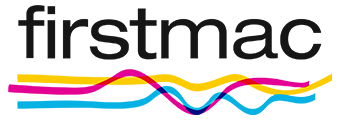Fact Checked
| Lender | Car Loan | Interest Rate | Comparison Rate* | Monthly Repayment | Interest Type | Vehicle Type | Maximum Vehicle Age | Ongoing Fee | Upfront Fee | Total Repayment | Early Repayment | Instant Approval | Online Application | Tags | Features | Link | Compare | Promoted Product | Disclosure |
|---|---|---|---|---|---|---|---|---|---|---|---|---|---|---|---|---|---|---|---|
5.99% p.a. | 7.12% p.a. | $580 | Variable | New | No Max | $8 | $400 | $34,791 |
| Promoted | Disclosure | ||||||||
6.09% p.a. | 7.22% p.a. | $581 | Variable | New | No Max | $8 | $400 | $34,874 | |||||||||||
6.49% p.a. | 6.80% p.a. | $587 | Variable | New | No Max | $0 | $200 | $35,211 | |||||||||||
6.74% p.a. | 7.05% p.a. | $590 | Variable | New, Used | No Max | $0 | $195 | $35,422 | |||||||||||
6.99% p.a. | 7.27% p.a. | $594 | Variable | New | No Max | $0 | $200 | $35,634 | |||||||||||
7.69% p.a. | 7.90% p.a. | $604 | Variable | New | No Max | $0 | $149 | $36,231 | |||||||||||
7.79% p.a. | 9.13% p.a. | $605 | Variable | Used | No Max | $0 | $195 | $36,317 | |||||||||||
9.99% p.a. | 10.21% p.a. | $637 | Variable | Used | No Max | $0 | $150 | $38,236 | |||||||||||
9.49% p.a. | 10.93% p.a. | $630 | Variable | New, Used | No Max | $13 | $395 | $37,795 | |||||||||||
5.94% p.a. | 7.07% p.a. | $579 | Variable | New | No Max | $8 | $400 | $34,749 | |||||||||||
5.84% p.a. | 6.97% p.a. | $578 | Variable | New | No Max | $8 | $400 | $34,665 |
| Promoted | Disclosure |
Frequently Asked Questions
Yes, it is possible to refinance your car loan on a variable rate.
People generally refinance their car loan to take advantage of a better deal - one that offers a lower interest rate, reduced fees, unique features, or different loans terms that better suit their needs.
A variable-rate car loan can move up or down at any time at the discretion of the lender, but they generally move in sync with Australia's cash rate,which is controlled by the Reserve Bank (RBA). This means your loan repayments can rise or fall over the term of your loan.
Meanwhile, a fixed rate car loan means you'll have a consistent monthly payment amount for a set period of time. Essentially, your repayments will stay the same.
Savings.com.au's car loan calculator can help you calculate your potential car loan repayments, based on your interest rate, car price, loan term, and payment frequency.
A redraw facility allows borrowers to 'redraw' or access any additional loan payments they have made into their car loan outside their regular ongoing repayments.
This is a feature borrowers should consider when comparing car loans as it can help if you're in need of financial relief. For instance, if you need to do some repairs to your vehicle, you can access the extra funds you deposited to cover the bill.









